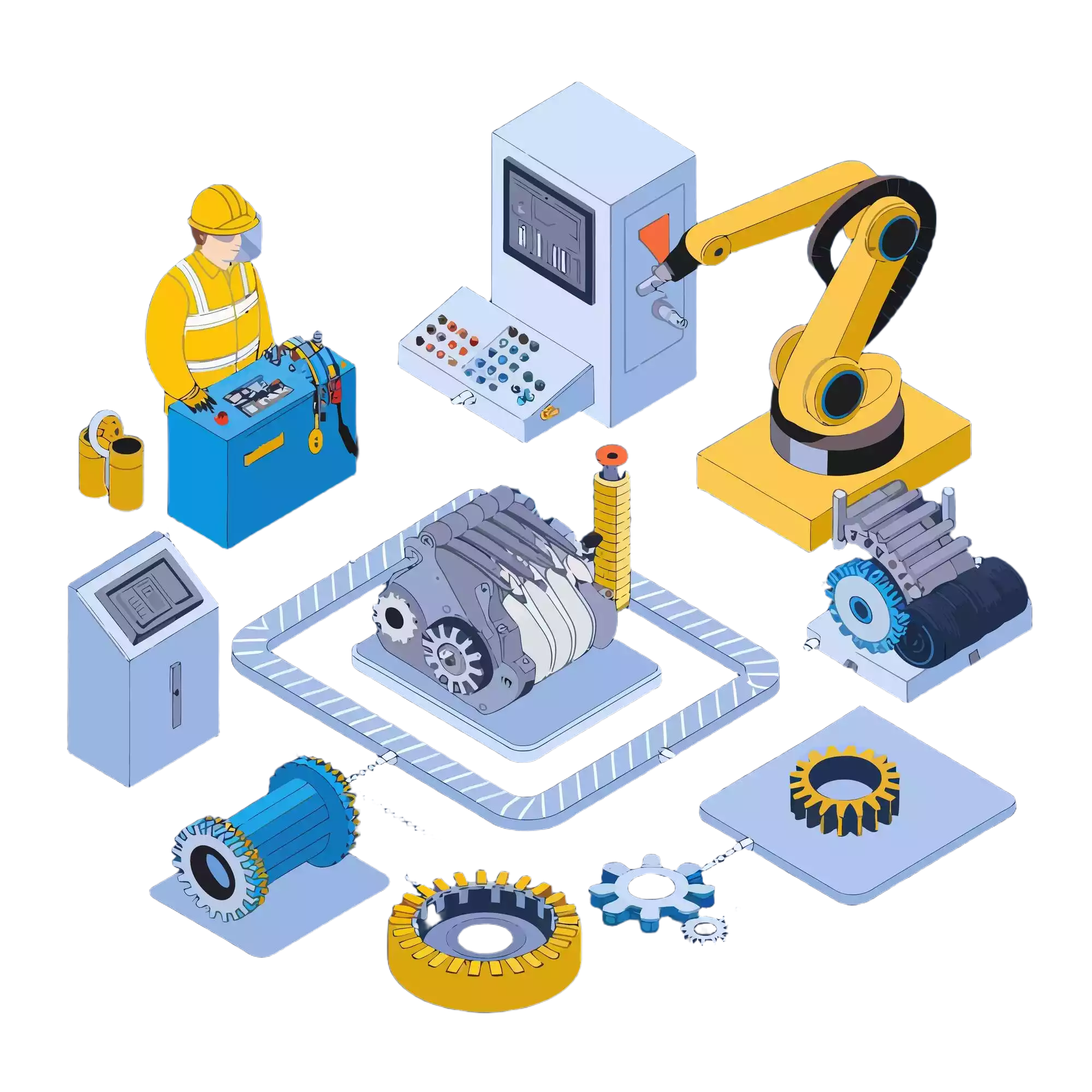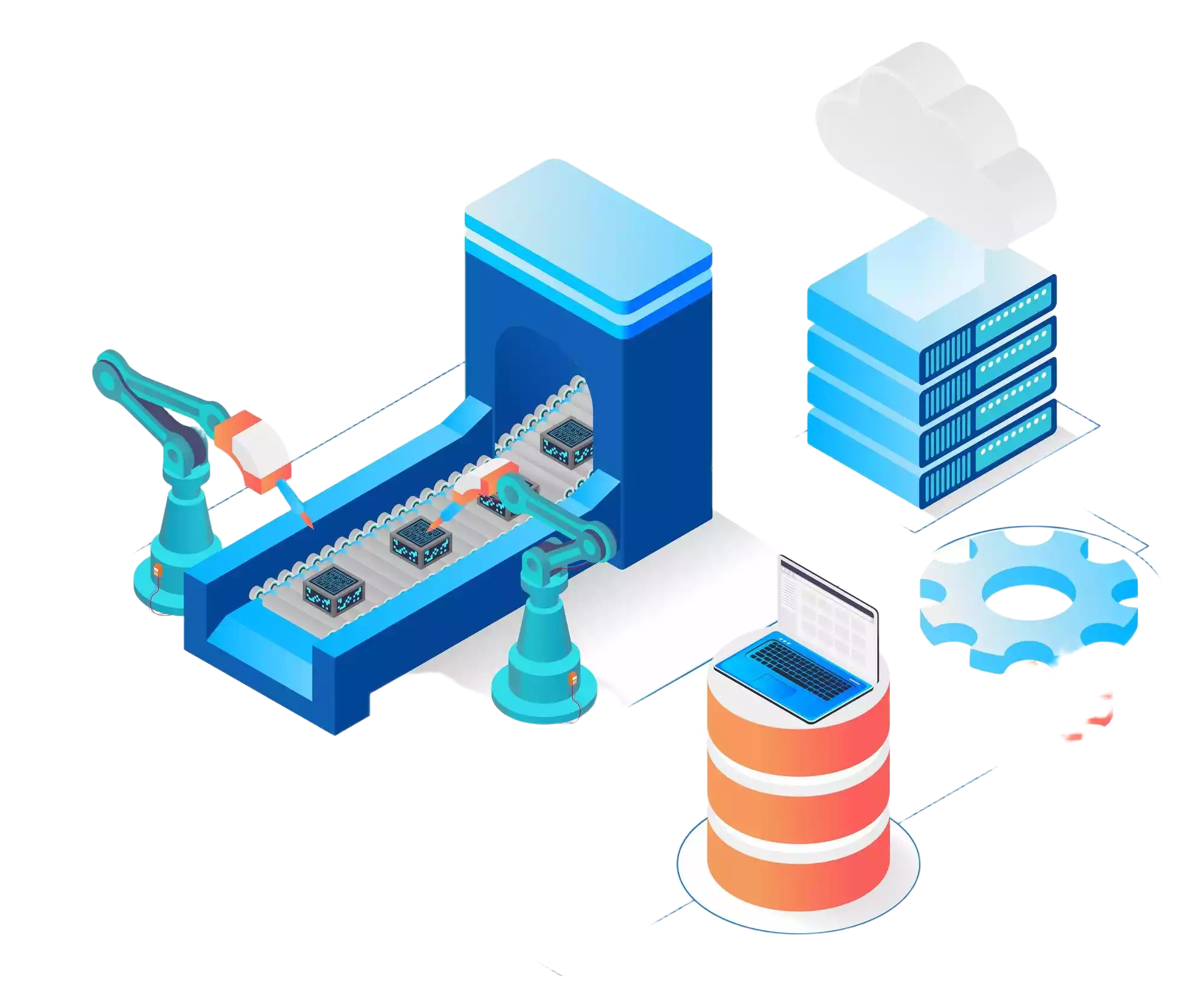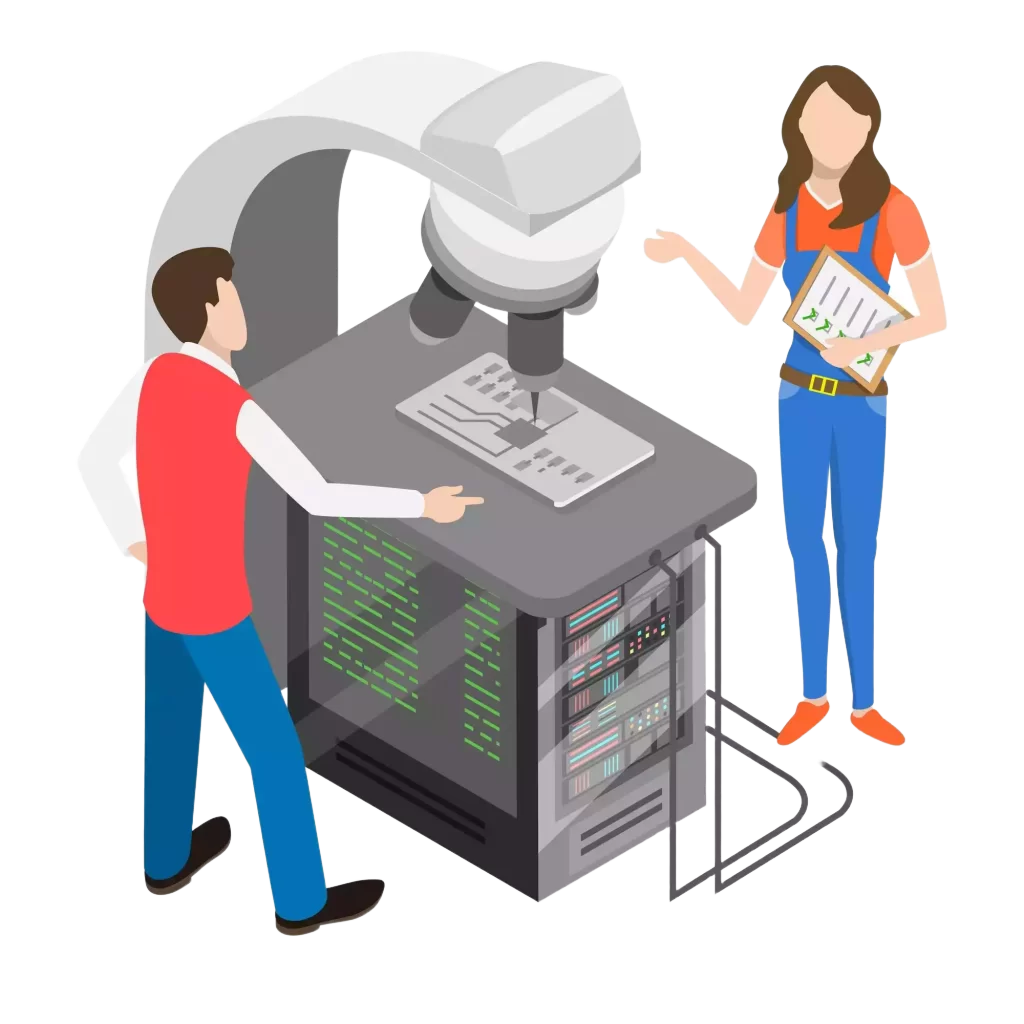CNC Machining
What is CNC Machining?
The CNC system minimizes errors associated with traditional manufacturing, ensuring precision in operations such as cutting, milling, drilling, or turning various materials.
CNC (Computer Numerical Control) Machining is a manufacturing process that uses computers to control various machines such as lathes, mills, routers, and grinders to produce highly precise parts. This process reduces errors, enables mass production of identical components, and is suitable for manufacturing complex parts.


Key Features
High Precision
Reduces human error.
Consistent Quality for Mass Production
Ideal for industries requiring large quantities.
Versatility in Materials
Suitable for materials such as aluminum, stainless steel, and ABS.
How Does CNC Machining work?
- Design Creation (CAD):
The process begins with a design created using CAD (Computer-Aided Design) software. This software creates a detailed 2D or 3D digital model of the part or product. - Generating the Toolpath (CAM): Once the design is ready, CAM (Computer-Aided Manufacturing) software converts the CAD model into a CNC program or toolpath. This program is written in G-code, which instructs the CNC machine on how to create the part (e.g., tool movement, speed, depth of cut).
- Machine Setup: The material to be machined, typically metal, plastic, or wood, is secured to the machine bed or workholding device. The appropriate cutting tools (e.g., drills, end mills, or lathes) are selected and loaded into the CNC machine.
- Execution (CNC Operation): The CNC machine reads the G-code and executes the instructions. The cutting tools move precisely along the designated axes (X, Y, Z, and sometimes A and B for rotational movements) to remove material and create the desired shape.
- Quality Control: After machining, the part is inspected for quality using tools like calipers, micrometers, or coordinate measuring machines (CMM) to ensure it meets the specifications.
Types of CNC Machines
- CNC Mills: For cutting, drilling, and shaping flat or complex surfaces.
- CNC Lathes: For turning operations to create cylindrical parts.
- CNC Routers: Commonly used for cutting softer materials like wood, plastic, or foam.
- CNC Grinders: Used for finishing surfaces or creating precision components.
- CNC Plasma Cutters: Use a plasma torch to cut through metal.
- CNC EDM (Electrical Discharge Machining): Uses electrical discharges to cut through materials.
What Materials are used in CNC Machining?
- Metals: Aluminum, steel, brass, titanium, etc.
- Plastics: ABS, polycarbonate, acrylic, etc.
- Composites: Carbon fiber, fiberglass.
- Other: Wood, foam, or ceramics.
Advantages of CNC Machining
- High precision and accuracy.
- Automation reduces human error.
- Consistency in mass production.
- Wide range of materials.
- Complex geometries are possible.
Applications of CNC Machining
- Aerospace (engine parts, structural components).
- Automotive (custom parts, gears).
- Medical (surgical instruments, implants).
- Electronics (housing components, circuit boards).
- Prototyping and custom manufacturing.
What is the future of CNC Machining?
- Smart Technology: CNC will integrate IoT and AI for real-time production optimization.
- Advanced Materials: Support manufacturing with high-tech and sustainable materials.
- Hybrid Manufacturing: Combine CNC and 3D printing for complex part production.
- Automation: Utilize robots and cobots to enhance speed and reduce labor costs.
- Sustainability: Improve energy efficiency and minimize production waste.
- Precision and Speed: Achieve nano-level precision and faster production.
- Customization and Prototyping: Enable personalized production and faster prototyping.
- Cloud Control: Remote CNC control through cloud-based systems.
- Emerging Markets: Expand technology to small businesses in new markets.
- Workforce Skills: Upskill workers to collaborate with advanced technologies.

7 tips for choosing a CNC machining service
Check the Provider's Expertise
- Choose a service provider with experience in handling the materials and parts you need, including the ability to manage complex tasks.
Evaluate Quality Standards
- Ensure the provider has certifications like ISO 9001 or other relevant standards to guarantee high-quality output.
Assess Their Equipment and Technology
- The provider should have modern CNC machines and advanced technologies to ensure precision and efficiency.
Review Past Work and Customer Feedback
- Check their portfolio and client reviews to gauge their reliability and the quality of their work.
Discuss Production Time and Flexibility
- Opt for a provider that can deliver on time and adjust to your production demands as needed.
Ensure Transparent Communication
- The provider should offer clear communication about pricing, processes, and project updates.
Seek Value for Money
- Compare costs and the quality of work delivered—avoid selecting the cheapest option if it compromises quality.

We connect buyers with trusted suppliers to ensure you get the right products for your business needs.
IndustrialX is the ultimate one-stop marketplace for businesses in the automotive and industrial sectors, providing a seamless way to find, compare, and purchase high-quality industrial equipment.
Manufacturing Services
Manufacturing Capabilities to Meet Your Needs
Customer base
manufacturers
CNC Machining
A precise manufacturing process using computerized machines to cut, shape, and finish materials with high accuracy.
Read more3D Printing
A process that creates three-dimensional objects layer by layer from digital models, enabling rapid prototyping and customization.
Read moreSheet Metal
The process of shaping metal sheets into desired forms using cutting, bending, and stamping techniques.
Read moreInjection Molding
A manufacturing process where molten material is injected into a mold to create parts with high precision and detail.
Read moreDie Casting
A process where molten metal is forced into a mold to create durable and complex parts with precise detail.
Read moreAssembly Products
The process of putting together different components to create a finished product, ensuring functionality and quality.
Read more
